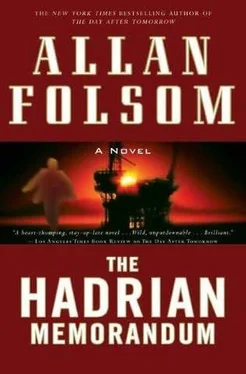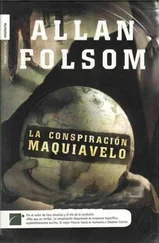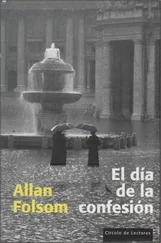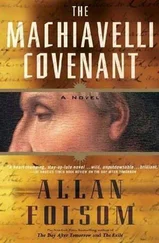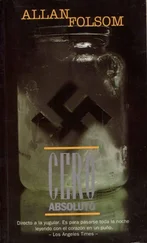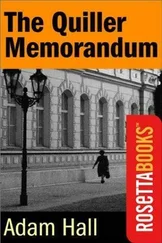Done, he pulled a stack of reports toward him, the findings of more than two dozen investigators who had interviewed witnesses and bystanders at the Platz der Republik and the Brandenburg Gate shortly after Haas’s murder. He opened the first and began to read. Maybe, hopefully, there was something somewhere in them that had been overlooked.
2:57 A.M.
In two of the first four reports, three eyewitnesses-one at the Platz der Republik and two near the Brandenburg Gate-had made mention of a young, curly-haired man in a black sweater running through the crowd as if he were being chased. That was all, just that. Nothing about what he looked like, his size, or what he was wearing other than the sweater. It all three cases it was just a throwaway observation. Certainly nothing that would tie him in with Marten, Anne Tidrow, or the Haas murder. Nonetheless Franck made a note about it and reached for the fifth report. As he did his phone rang. He glanced at the clock on his desk and then picked up.
“Yes.”
“ Hauptkommissar. ” It was Gertrude Prosser.
“You should be home sleeping. A few hours at least.”
“ You are working .”
“Yes, but I’m foolish. Go home, Gertrude. You can’t work if you don’t rest.”
“ Hauptkommissar .” Her voice became urgent. “ I just received answers on two pieces of information you requested a short while ago. I think they should be regarded as confidential .”
“Go on.”
“ You wanted to know where Nicholas Marten and Anne Tidrow had been before Paris. Answer, they had both come in on the same Air France flight from Malabo, on the island of Bioko, Equatorial Guinea .”
“Equatorial Guinea?”
“ Yes, sir .”
“The second piece?”
“ Striker Oil has oil field service and exploration contracts around the world. Lately they have expanded exploration activities on the island of Bioko and have hired a British private military contractor called SimCo to provide protective services there. And then I discovered something else .” She paused, and he could feel the excitement in her.
“Go on.”
“ A catholic priest, a Father Willy Dorhn, was killed in southern Bioko by members of the national army a day before Marten and Ms. Tidrow left there .”
“So?”
“ Father Dorhn was the brother of Theo Haas .”
“What?”
“ That’s all I have so far. There is a major civil war building in Equatorial Guinea. Maybe they are all connected .”
“Yes, maybe. Good work, and thank you, Kommissar Prosser. Go home and get some sleep.”
Emil Franck hung up. This was a turn he would never have expected. Was it possible Marten and Anne Tidrow, and maybe her oil company, were somehow involved in the civil war in Equatorial Guinea? And had some part of it spilled over into Berlin via Theo Haas and his brother? If so, why? The questions puzzled and troubled him at the same time, and he suddenly wondered if this was something that should be handled by either the BND, the Federal Intelligence Service, or the BKA, the Federal Criminal Police, rather than his office.
But bringing in either agency would change everything. Their presence would be too unwieldy and have too much media coverage. As a result he might lose Marten and Anne Tidrow altogether. No, can’t do it, he thought. For now, at least, he would do as Gertrude Prosser had advised and keep the information confidential.
Again he glanced at the clock on his desk.
3:09 A.M.
Time to lie down on the worn leather couch across from him and get some sleep himself. He closed the reports he’d been studying and was reaching to turn off his desk lamp when his personal cell phone sounded, announcing an incoming call with a musical ringtone a technical assistant had programmed, which he detested.
Who was it? His wife would have long been asleep. His children were out of the country, his twenty-year-old daughter spending a college year in China, his nineteen-year-old son backpacking in New Zealand. Very few others had the number.
The phone went silent, then rang again. He picked up and clicked on.
“Yes.”
“ I thought I’d find you working ,” a throaty female voice came back.
Franck paused, trying to place the voice. Then he did. “It’s been a long time.”
“ We need to talk .”
“When?”
“ Twenty minutes .”
“Same place?”
“ Yes .”
“Okay,” Franck said, then slowly clicked off. He was right, it had been a long time. But putting things together, he knew he should have expected to hear from her.
3:12 A.M.
7:15 A.M.
Marten woke with a start. The bed beside him was empty. He looked around. The clothes Anne had taken off the night before to carefully fold and lay atop the chest of drawers were gone.
“Anne?”
There was no reply. He got up fast.
“Anne?”
He went down the hall, glanced at the open bathroom door, then went into the front room, then into the tiny kitchen. She wasn’t there. It was then he smelled the coffee and saw the automatic coffeemaker on the counter near the sink. A freshly brewed pot was nestled inside it. A cup sat alongside. So did a note.
Back soon. Stay here.
I have your passport .
His passport? Maybe he had threatened to leave and take his chances with the police, but in truth, for the moment, at least, he was better off staying right where he was and letting her try to find a way to get them out of Berlin. Trouble was, by now she would be vulnerable to capture, too, and would know it, so where the hell did she go? Immediately came another thought. What if someone knocked on the door? Or had a key and just came in? Anne would have been able to handle things because she set it all up. He didn’t even know whose apartment this was.
As if in answer to his concern, he suddenly heard voices in the alley outside. Immediately he went into the front room, stood by the window, and carefully looked out. A light rain was falling, and a number of people were entering the alley from the street under umbrellas. Most looked like they were college age or close to it. It made him think there might be some kind of school farther down the alley that had Saturday classes. If so, passport or not, it might be a place for him to hide, to blend in among the students, in the event the police began a house-to-house search.
7:19 A.M.
A small television sat on a bookshelf across the room. He went to it and turned it on, hoping for news of Hauptkommissar Franck’s investigation. Quickly he ran through the channels. There was nothing but Saturday-morning television, cartoons and sports and travel shows. Finally he found an English-language news channel where someone was giving the weather forecast for Europe. He looked at his watch and then at the door, wondering what time Anne had gone out. The weathercast segued to an Audi commercial. He went back to the window and looked out. There were more young people huddling under umbrellas. By now a line had begun to form. What was going on, especially this early on a Saturday morning? Then commercials ended and the news resumed, and he went back to the TV to watch it.
The story being covered was about a car that had exploded on a country highway. All he saw was police investigators and the burned-out wreckage of the car, and he assumed the location was somewhere in Germany. It wasn’t. It was Spain. The car had been a limousine; its driver was among the dead. A bomb was suspected. The other victims were thought to be three of five people missing since they’d arrived in Madrid the morning before on a flight from Paris, Spanish medical personnel just returned to Europe from Equatorial Guinea. Their names were being withheld pending formal identification of the bodies.
Читать дальше
